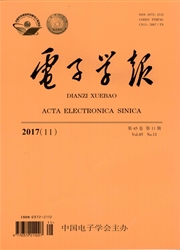

 中文摘要:
中文摘要:
长期以来,学术界曾经分别从智力系统的结构、功能和行为三个不同的侧面分析和模拟人的智力过程,取得了众多成果,形成了人工智能理论的结构主义、功能主义和行为主义三大体系,这些研究也留下许多问题,而且互相缺乏沟通,常常发生“孰优孰劣”的争论,本文试图提出智能生成的“机制主义”,希望从智能生成的共性机制入手探讨智能的本质,研究发现:在一般情形下,智能生成机制表现为“信息-知识-智能的转换”,由此引出了“知识理论”;特别有意义的是,结构主义、功能主义、行为主义三者可以在“机制主义”框架下得到和谐完美的统一,这可能为智能科学技术的发展提供新的理解,带来新的机会。
 英文摘要:
英文摘要:
There have been so far three prestigious schools of AI theory respectively established through the structural, functional and behavioral approaches to human intelligence whereas there have been also, however, controversies among them over the theme of which one of the three should be the one who dominates. It is the author's belief that all the three schools did not cover the essence of intelligence. A new approach, mechanism approach,is thus proposed in the paper to cope with the situation. It is discovered that the mechanism of intelligence formation should be a series of transformations——from information to knowledge and further to intelligence that are discussed in the paper. Interestingly but not surprisingly,the three existed schools of AI theory can well be unified under the framework of the mechanism approach. The mechanism approach and the unification of AI may hopefully provide a new foundation for the future development of AI theory and applications.
 同期刊论文项目
同期刊论文项目
 同项目期刊论文
同项目期刊论文
 期刊信息
期刊信息
